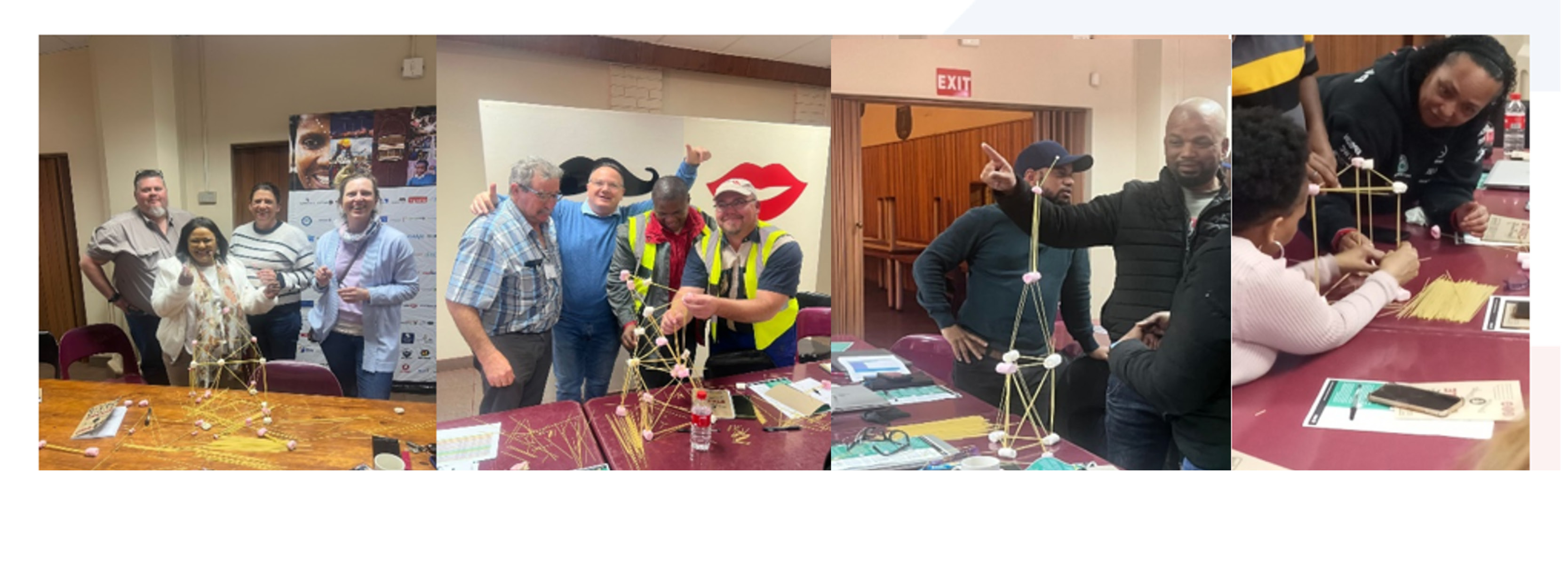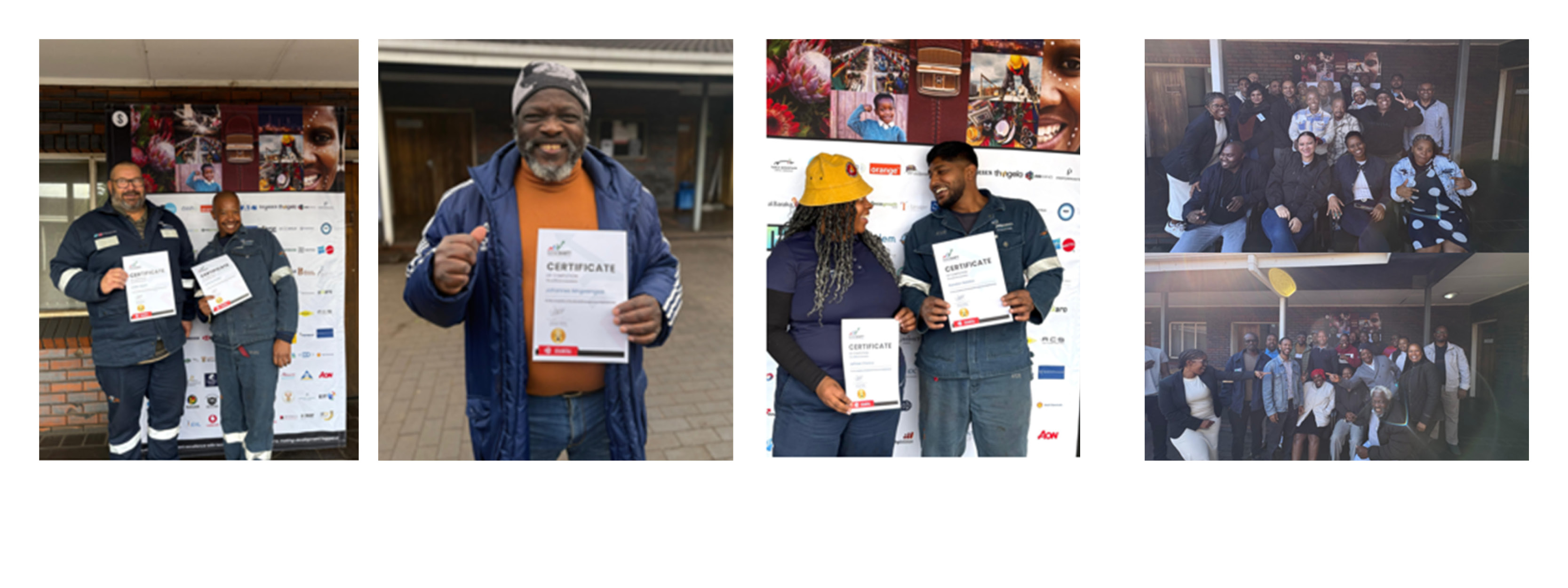In South Africa’s evolving employment landscape, retrenchments are no longer rare, they are a reality for many organisations as the employment market shifts in structure and purpose through mechanisation, digitisation and shifting economic markets. The impact for employees is real, with unemployment at 32.6% (Stats SA, Q2 2025), and households struggling with limited savings and high debt, workforce transitions demand more than standard support, they require strategy, foresight, and care.
Outplacement is often misunderstood as a service solely for departing employees. It is a strategic, people-focused approach that builds resilience, safeguards employer brand, and preserves organisational trust. We see outplacement as a vital part of responsible workforce planning, retention of key people, development of resilience skills and addressing survivor guilt, alongside the obvious brand management and turning difficult transitions into opportunities for growth, learning, and long-term stability.
The South African Context
While traditional outplacement methods such as career coaching, CV support, and interview preparation remain essential, they are not sufficient on their own in South Africa, especially as CVs now need to be ATS-friendly to navigate the increasing use of AI in recruitment and the reality is that there will not be jobs available for all individuals impacted by retrenchment.
Our experience shows that workforce transitions demand a new lens:
- Entrepreneurship as an Option: Many participants in Siyakha’s outplacement programmes (round 65%) choose to pursue entrepreneurial pathways. This not only supports household income in the short term but also creates lasting opportunities for growth and community impact. As highlighted in our previous communications, thoughtful outplacement ensures that exits are not moments of loss, but demonstrations of care and empowerment. When employees leave with dignity and are equipped to start new ventures and/or to support the growth of existing family or household business ventures, the success stories that follow reinforce the organisation’s reputation and legacy, showing that values-driven transitions can shape both individual futures and company credibility.
- Financial Resilience: Employees need guidance to manage complex realities, such as supporting multiple households or repaying debt (National Treasury, 2024)
- Trades and Recognition of Prior Learning (RPL): Many workers require formal recognition for years of practical experience to unlock career progression (Department of Higher Education & Training, 2023)
- Digital Enablement: Technology opens global opportunities, from freelancing and e-commerce to remote work, allowing South Africans to earn beyond geographic constraints (World Bank, 2022).
Recent draft Labour Law amendments propose increasing severance pay, extending retrenchment consultation periods, and tightening dispute resolution protocols (NEDLAC, 2025), while designed to protect workers, these changes could double retrenchment costs for organisations if transitions are handled reactively.
Organisational sustainability can often be directly impacted by the management of the Outplacement process. Once retrenchments are announced, research indicates that 70% of managers experience burnout during these processes, further emphasising the need for proactive planning (Harvard Business Review, 2023). The active support of managers and employees not impacted by the retrenchment are crucial functions of ensuring that the organisational structure is adequately amended to consider a reduced headcount, the change management of structures and managerial support in managing change, are essential components to ensure that business results are not negatively impacted, as these processes of change unfold.
Why Outplacement Matters
Culture is most visible in how organisations manage exits. Employees remember the dignity, or lack thereof, with which they were treated, while remaining staff observe organisational values in action.
Thoughtful outplacement ensures:
- Positive employee experiences: Departing staff carry favourable stories about the company, often becoming brand ambassadors long after leaving (Intoo, 2024)
- Engaged survivors: Remaining employees maintain morale and productivity, seeing that the company treats people with respect (Right Management, 2024)
- Community impact: Supporting departing employees stabilises households and communities, particularly in a high-unemployment context (Stats SA, Q2 2025)


Legal and Compliance Considerations
The Code of Practice on Dismissals (Gazetted September 2025), and draft Labour Law amendments underscore the importance of structured outplacement.
Key updates include:
- Mandatory fair consultation and objective criteria in retrenchments (Department of Employment and Labour, 2025)
- Statutory severance pays, with preferential re-employment recommendations (NEDLAC, 20252025)
- Fairer procedures for misconduct, incapacity, and probation (BusinessTech, 2025)
These changes increase legal and reputational risks, making professional outplacement essential for organisations of all sizes.
Practical Steps for Organisations
Integrate outplacement into workforce planning: Embed structured exit support into all restructuring initiatives.
Provide holistic support: Career guidance, financial coaching, mental health support, and entrepreneurship resources (Stats SA, 2024)
Protect employer brand: Transparent communication preserves trust with employees and external stakeholders (Intoo, 2024)
Support remaining staff: Survivor programmes reduce morale decline and productivity loss (Right Management, 2025)
Measure impact: Track quantitative outcomes (placements, businesses created) and qualitative results (employee feedback, morale).
Leverage technology: Digital platforms can streamline RPL certification, career tools, and programme reporting (World Bank, 2022).
Involve external experts: HR consultants and career coaches bring objectivity and specialised knowledge.
Long-Term Business Benefits
Companies that embrace strategic, people-first outplacement experience:
- Reduced turnover among remaining staff.
- Stronger employer brand and improved recruitment outcomes.
- Compliance with legislation and lower legal risk.
- Enhanced or sustained supplier & customer relationships
- Positive social impact through financial resilience, entrepreneurship, and workforce empowerment (NEDLAC, 2025)
"Investing in employees' futuresnot only equips them to meet current and future challenges but also strengthens trust and collaboration within organizations. This commitment drives success, growth, and a competitive edge for companies, positioning professional development as a strategic differentiator"
Looking Ahead
The future of Outplacement in South Africa is about more than managing exits, it is about enabling opportunities and strengthening organisational resilience. Companies that prioritise strategic, people-first approaches will be able to guide employees toward flexible work, entrepreneurial ventures, and project-based roles while simultaneously protecting morale, culture, and trust.
Data-driven workforce planning will allow organisations to anticipate skills gaps and provide targeted support, while integrating personal development, financial literacy, and mental health support ensures holistic outcomes for employees.
Outplacement will increasingly reflect organisational values, with leadership accountability at the forefront of creating dignified transitions. By embedding these practices into broader ESG and social impact initiatives, businesses can demonstrate commitment to both people and communities, turning workforce change into a strategic advantage that fosters innovation, long-term growth, and lasting trust.
Connect with Siyakha to explore how your organisation can leverage strategic outplacement for sustainable impact.
Dionne Kerr
E:
Frequently Asked Questions
Outplacement is a support service provided to employees leaving an organisation, often due to retrenchments or restructuring. It helps individuals transition smoothly into new roles or career paths, offering guidance, tools, and resources to manage change.







